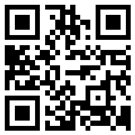1. Preparation for metal and magnetic substances
Because magnetic resonance imaging requires the use of electromagnetic waves to generate images of body structures, and there is a strong magnetic field inside the machine, metal and magnetic substances may interact to interfere with the results or cause damage to patients. Therefore, the following preparations need to be made in advance.
Preparation of personal belongings
Do not carry or wear the following substances: belt buckles, metal zippers, snap buckles, watches, wallet with magnetic stripe bank cards or credit cards, umbilical rings, foot rings, etc;
Wear shirts or blouses that are easy to remove, and women should wear bras that are easy to remove;
Wear pants that are free of metallic materials, such as sports pants with elastic straps or hospital prepared inspection clothing;
be careful:
If there is a medicated application such as a plaster, magnetic resonance imaging may cause burns and burns to the skin;
Some cosmetics also contain metal substances, so it is best not to use makeup on that day, including nail polish, antiperspirants, sunscreen, etc., and hair care products are also best not to use;
The pigment in the tattoo can also cause burns, so a doctor should be consulted;
Accompanying family members should also remove metal or electromagnetic substances;
If there is a lot of noise during the inspection, you can wear earplugs in advance.
Preparation of internal implants
If there is any metal or metal implant under the skin, please consult a doctor in advance to determine whether it is safe, including:
Implanted cardiac or vascular instruments such as cardiovascular stents, implantable cardioverter defibrillators, or metal heart valves (especially metal ball/mesh format);
Brain aneurysm clip;
There are metal needles, metal clips, or metal parts in the body, including metal prostheses, metal teeth, or metal supports;
Implantation of other medical instruments, including insulin pumps, anesthesia pumps, nerve stimulators, implanted medical infusion pumps, or cochlear implants;
Beauty decoration articles containing metal, including eyes or eye sockets with metal substances such as earrings or tattooed eyeliner.
Whether it can be done or not depends on two important factors: the nature of the implant material and the magnetic resonance field strength.
Materials with plastic properties can be used for magnetic resonance;
Commonly used titanium alloy implants are nonmagnetic or weakly magnetic, and most are compatible with nuclear magnetic resonance (preferably with a magnetic resonance field strength not exceeding 3.0T);
Implant materials made of steel cannot undergo nuclear magnetic resonance 100%.
Generally speaking, the following situations may not be able to conduct an MRI examination:
Recently underwent vascular surgery;
Equipped with an intrauterine device.
Nuclear magnetic resonance inspection is strictly prohibited under the following circumstances:
Equipped with a cardiac pacemaker;
Critical patients who require monitoring equipment.
If patients with ferromagnetic materials such as shrapnel, steel nails, and false joints must undergo magnetic resonance examination, they should be closely observed to prevent accidents.
The preparation that a patient needs to make is to inform the doctor clearly and in detail about the status of their internal implants. It is best to inform the doctor of detailed information such as the model of the implanted device at the time. Therefore, it is crucial to preserve information about your own case and any substances placed in the body. After each visit, keep relevant materials in one place or take photos to save them.
2. Preparation related to food and water prohibition
Generally, you can eat as usual before an MRI examination, but in the following two cases, you need to fast and water in advance:
Do not eat or drink for a few hours before an MRI examination of the abdomen or pelvis;
Patients who need to receive sedatives should not consume any solid food 6 hours before the injection to prevent nausea after the injection. Water should be prohibited 2 hours before the injection, but a small amount of clear liquid such as water can be consumed 2 hours before the injection.
3. Precautions related to contrast agents
Contrast agents can cause allergies and affect body metabolism. Therefore, if contrast agents are needed (some do not need them), patients should inform their doctors in advance:
Is there any allergy to the components of contrast media? The contrast media used for nuclear magnetic resonance examination generally do not contain iodine, but may contain barium, gadolinium, etc;
If you have other diseases, such as diabetes, kidney problems or coagulation disorders, sickle cell anemia, you may not be able to use contrast agents.
4. Precautions for special groups
In an MRI magnetic field, it is necessary to maintain a resting posture. Patients with claustrophobia, infants who cannot maintain silence, need to use sedatives during the examination process.


Scan QR code
